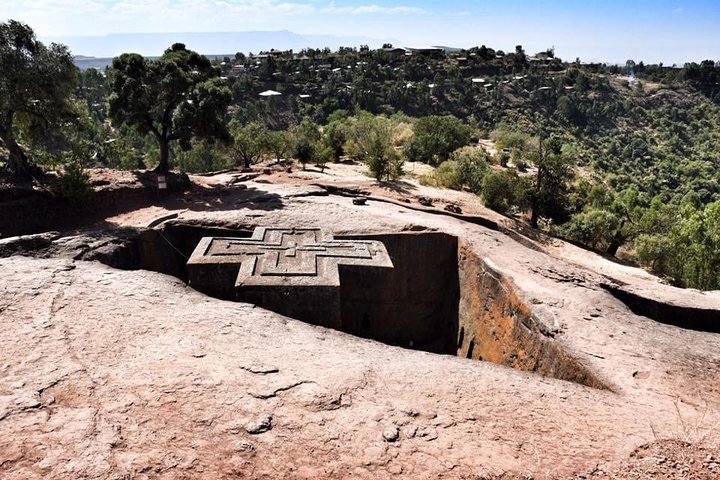
Amhara, a region in the heart of Ethiopia, is a treasure trove of history, culture, and natural beauty. This captivating area is home to the ancient city of Lalibela, renowned for its rock-hewn churches that are a testament to Ethiopia’s rich Christian heritage. Imagine exploring these architectural marvels on a guided tour, where each church tells a story of devotion and craftsmanship.
For nature enthusiasts, the Simien Mountains offer breathtaking landscapes and unique wildlife. A day trip to this UNESCO World Heritage site allows you to witness endemic species and dramatic vistas that will leave you in awe.
The city of Bahir Dar, situated on the shores of Lake Tana, is another must-visit destination. Here, you can embark on a day trip to discover the lake’s ancient monasteries and the majestic Blue Nile Falls, often referred to as ‘Tis Issat’ or ‘Smoking Water’ for its misty spray.
History buffs will find Gondar irresistible, with its castles and palaces that hark back to Ethiopia’s imperial past. A city tour of Gondar offers a glimpse into the grandeur of the Ethiopian Empire and its architectural splendor.
Whether you’re trekking through the highlands, exploring ancient churches, or cruising on Lake Tana, Amhara promises an unforgettable journey filled with discovery and wonder.
Amhara, a region in the heart of Ethiopia, is a treasure trove of history, culture, and natural beauty. This captivating area is home to the ancient city of Lalibela, renowned for its rock-hewn churches that are a testament to Ethiopia’s rich Christian heritage. Imagine exploring these architectural marvels on a guided tour, where each church tells a story of devotion and craftsmanship.
For nature enthusiasts, the Simien Mountains offer breathtaking landscapes and unique wildlife. A day trip to this UNESCO World Heritage site allows you to witness endemic species and dramatic vistas that will leave you in awe.
The city of Bahir Dar, situated on the shores of Lake Tana, is another must-visit destination. Here, you can embark on a day trip to discover the lake’s ancient monasteries and the majestic Blue Nile Falls, often referred to as ‘Tis Issat’ or ‘Smoking Water’ for its misty spray.
History buffs will find Gondar irresistible, with its castles and palaces that hark back to Ethiopia’s imperial past. A city tour of Gondar offers a glimpse into the grandeur of the Ethiopian Empire and its architectural splendor.
Whether you’re trekking through the highlands, exploring ancient churches, or cruising on Lake Tana, Amhara promises an unforgettable journey filled with discovery and wonder.



















